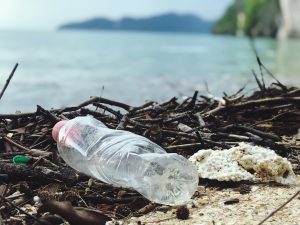A 2022 study by Sanluis-Verdes et al. has found that wax worm saliva is able to break down plastic in just a few hours.
The researchers collected saliva from Galleria mellonella worms and applied it to polyethylene (PE) films. After a few hours, the films had visibly deteriorated and analysis of the films determined that the plastic had oxidized and released additives, evidence that it had degraded.
Generally, plastics require decades or even centuries to completely degrade through natural exposure to the environment. Because of humanity’s high consumption of plastic, simply dumping them in landfills or waterways only leads to an accumulation that smothers habitats and leaks toxic substances into the soil and water.
This makes finding a safe and quick way of breaking down plastic crucial for sustainable waste management.
Scientists in recent years have been particularly interested in biodegradation, in which naturally-produced enzymes from bacteria, fungi, or animals are used to decompose plastic.
However, scientists have only identified a handful of enzymes that are capable of this, and these enzymes still require years to degrade plastic. They are unable to accomplish the first step of degradation – oxidizing the polymer – and still rely on exposure to UV light and other environmental factors to do it, which usually takes years.

Currently known process of plastic degradation. Credit: Rebecca Yang
Sanluis-Verdes et al.’s experiment demonstrated that the enzymes in wax worm saliva are in fact able to accomplish this crucial step under normal physiological conditions – room temperature, neutral pH, typical background levels of UV – in just a few hours rather than years. The researchers identified an increased presence of ketones in the PE after only applying the saliva a few times, proof that it had been oxidized by the enzymes alone.
The researchers also tried to identify the enzymes responsible. They were able to pick out two enzymes in the saliva that had a significant effect on PE degradation. Until now, it was believed that bacteria in the gut of wax worms were primarily responsible for plastic degradation, but this discovery indicated that it was the wax worms themselves that oxidized and broke down PE enough for it to then be completely decomposed by bacteria. The researchers also noted that the two enzymes were functionally different from known bacterial enzymes. This suggests that there may be other methods of biodegradation than what is currently known for bacteria.
The exact mechanism will require further studies to determine. If this can be identified and if the enzymes involved can be easily extracted or mass produced, using the enzymes found in wax worms may become a feasible way to naturally and quickly manage plastic waste.

